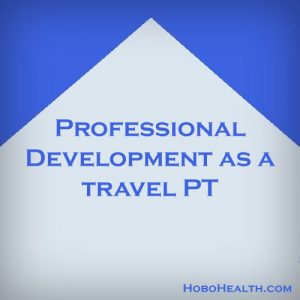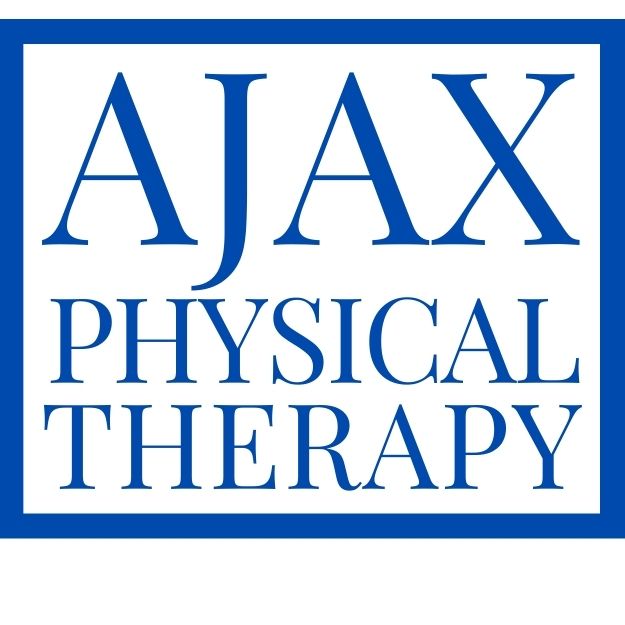This is the first blog of many. Enough with the statement of intention, let’s get down to it. Choosing quality continuing education programs as a traveling therapist can be a challenge. Courses are often found on-the-go between assignments or among a selection of whatever is available locally.
My biggest fear when a new PT tells me they want to start traveling are the potential loss of mentorship and professional growth. I think in my 5th year of practice (4th year of traveling) I’m just finally getting my head around the things that are important in PT practice. To understand the important pieces of practice that are so necessary to progress to my current level, some mentorship and progression had to happen.
 I don’t mean to say that an immediate new grad can’t travel, it just takes the right person who is willing to self-motivate and work that extra bit to find the professional expansion they need. My first travel assignment was perfect. It was in a community hospital with a steady staff and a solid director. I had the infrastructure around me where I could ask questions and work towards answers with my co-workers’ help. Ultimately, I found the mentorship I needed to grow. Because of the mentorship and support, I extended my contract there several times, a total of 10 months on my first travel assignment (longer than the “permanent” job I worked before traveling).
I don’t mean to say that an immediate new grad can’t travel, it just takes the right person who is willing to self-motivate and work that extra bit to find the professional expansion they need. My first travel assignment was perfect. It was in a community hospital with a steady staff and a solid director. I had the infrastructure around me where I could ask questions and work towards answers with my co-workers’ help. Ultimately, I found the mentorship I needed to grow. Because of the mentorship and support, I extended my contract there several times, a total of 10 months on my first travel assignment (longer than the “permanent” job I worked before traveling).
Clearly, you’re not always going to be able to find that assignment with all the support you want. So here’s my short list of the other ways to stay motivated, stay on track with your professional goals, and stimulate that mind of yours:
Take a certificate program (i.e. Paris, Maitland, McKenzie, etc.)
These certifications I personally believe are narrow in scope, but they require multiple courses and extensive study in their content. The process for each makes a person a stronger and more knowledgeable therapist.
Become an ABPTS Board Certified Clinical Specialist
This is most comprehensive way to expand you knowledge base in a specific practice area. The studying and learning required to pass the exam for a specialist certification is very time consuming, but will force you to stay up on the latest research and techniques. When you receive the certification it’s a great distinction for your resume and future interviews.
Attend state and national APTA conferences
Conferences are a great way to gain exposure to the highest level of practice. You can get education on a great variety of topics and practice setting in one place. The energy and inspiration at these meetings is contagious.
Enroll in a residency program
There are residencies that allow therapists to take a series of courses on weekends and collaborate with a mentor/expert through electronic means. Finding the right residency can be tough as a traveler, but it can be done if you are determined!
Add a new skill
Take a course on something specific you want to add to your tool box. The sooner you can put new techniques to work, the better, so maybe it’s a skill that meshes well with your current practice setting. Continuing education topics that come to mind for me would be dry needling, manipulation, wilderness medicine, primary responder for sports, mobilization with movement, or muscle energy technique, but your list might be very different from mine.


